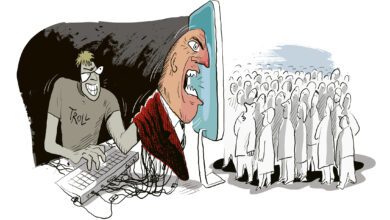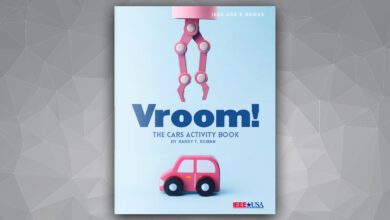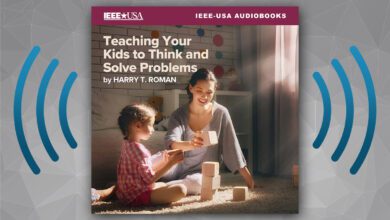
The title, “Professional Engineer,” is often associated with civil or structural engineers — and seldom with electrical, electronic and computer engineers. One reason can be attributed to educational institutions, where their professors, other higher educators and graduating seniors make most civil and structural engineers aware of licensing’s importance. Most civil and structural engineering professors, along with their Ph.D., would have their engineering license as well — allowing them to use the P.E. designation (P.E. is state-specific licensure).
Electrical, electronics and computer professionals rarely come across literature on engineering licensure as an important career pathway. One reason might be because companies that largely employ professionals in these disciplines often cite the “industry exemption,” so as to not be required to staff Professional Engineers. However, as increased use of technology affects the public-at-large, discussions on “industry exemption” have gained momentum — as lawmakers and industry experts question whether such an exemption should be re-visited, to ensure society’s health, safety and welfare.
Inarguably the question becomes: What is the value of engineering licensure to electrical, electronic and computer engineers?
First, let’s discuss the IEEE-USA policy position statement on The Use of the Title “Engineer” (IEEE-USA Position adopted, 22-Nov-2019), which states that:
- Individuals who have graduated with an engineering degree from an ABET/EAC accredited program of engineering education should not be prohibited from using the title “Engineer.”
- The protected titles, “Professional Engineer,” “Licensed Engineer,” “Registered Engineer,” and variations thereof, should be reserved for those technical professionals whose education and experience qualify them to practice in a manner that protects public health, safety and welfare — and who have been licensed to practice engineering by a jurisdiction.
Society has a broader view of what an engineer is and does. For example: A rail engine operator is also an engineer. However, the devil is in the details, when we start talking about the legal definitions. A person may not offer services that affect the public-at-large, without reviewing and conforming to appropriate licenses established in respective states. To distinguish between professionals who are licensed and those that are not, designations are generally used. For example, attorneys may include “J.D.” and “Esq.” after their name. J.D. represents their education, while Esq. signifies that they have passed their bar exam and are licensed to practice law in respective states. For engineers, “BS, MS, or Ph.D.” designates their education; while “P.E.” signifies they have passed their F.E. and P.E. exam (engineering licensure exams), and they are licensed to practice engineering in respective states. For medical professionals, it is a bit different. An “MD” after the name suggests the education; it does not have a separate designation. Medical license is required for practicing physicians and health practitioners. Nevertheless, all state license information for professions such as doctors, lawyers and engineers are public — and contained in searchable databases providing the latest information on licensure status.
As it relates to engineers within IEEE, many specialization fields require engineers to be licensed — by law — or are industry norms:
- Utility Power Generation, Distribution and Transmission
Design of Power Generation, Distribution and Transmission almost always involves a licensed engineering professional. Entry-level engineers in this field are expected to obtain their licenses. - Industrial, Commercial, Government (Federal, State and Local), Educational and Residential Design and Construction
The majority of licensed engineers are employed in these fields, and across all disciplines (Civil, Structural, Environmental, Mechanical, Fire Protection, Electrical, etc.). The contracts affect the public-at-large, requiring a Professional Engineer (P.E) to stamp and sign (and in certain states emboss) their works — most of which are design drawings or other documents. - Forensic Engineering/Expert Witness
Forensic engineering is the study of failures, accidents and other incidents involving engineered products that have caused personal injury or property damage. Forensic engineering’s goal is to discover what happened, when something went wrong, as well as why it happened. A P.E. is required to do forensic engineering, and to be an engineering expert witness. Engineering expert witnesses are highly credentialed professional engineers that provide litigation support through review, evaluation, inspection, laboratory testing, report writing, depositions and court testimony. - Private/Engineering Consulting
Licensed professionals can start their own consulting firms — and a license is a requirement for establishing a PLLC (Professional Limited Liability Company), PC (Professional Corporation), or other similar professional corporate organizations. A PLLC is specifically for services that require professional licensure, including dental, medical, real estate, engineering, nursing, accounting, or law. For example, Professional Engineers who own engineering firms could structure them as PLLCs, to offer engineering services.
Individual U.S. states have set the licensing eligibilities. Generally speaking, to be licensed, there are three requirements. First, review respective state board requirements, including minimum education criteria. Second, Pass the Fundamentals of Engineering (F.E.) Exam. The F.E. exam is a general, engineering principles-based exam, recommended to be taken right after (while the concepts are still fresh) graduation, for graduating seniors of four-year engineering accredited programs. The third and the last step is the Principles and Practices of Engineering Examination (P.E.) exam — focused on measuring candidates’ experience as working engineers. A respective state’s board for P.E. exams sets forth the minimum years of engineering work experience (under a licensed professional engineer) required for P.E. exam eligibility. The National Council of Examiners for Engineering and Surveys (NCEES) administers both exams.
In electrical and electronics engineering, three exams are available:
- P.E. Electrical and Computer: Computer Engineering
Beginning in 2021, the P.E. Electrical and Computer: Computer Engineering exam will be computer-based and administered one day per year. - P.E. Electrical and Computer: Electronics, Controls and Communications
Beginning in 2021, the P.E. Electrical and Computer: Electronics, Controls and Communications exam will be computer-based and administered one day per year. - P.E. Electrical and Computer: Power
This exam is computer-based and administered year-round at NCEES-approved Pearson VUE test centers.
Experienced engineers may choose to work nationally and internationally. NCEES national records application helps in reciprocity licensure to other states in the United States, as well as other countries. NCEES international registry application helps in reciprocity licensure to international licensing associations that have collaborations and MoUs (Memorandums of Understanding) signed with the NCEES (United States). In conclusion, engineering licensure opens many pathways for personal growth — not just locally, but globally. It is both a rewarding experience, and a mark of distinction, for those engineers who have put in the effort to understand the importance of licensure, and its benefits to society.
David C. Cotton, P.E., has extensive experience in telecommunications and wireless engineering in the military, as well as commercial/industrial wireless sectors. His experience entails Cellular System Design and Optimization, Site Compliance with FCC OET-65, and other RF safety standards. He has served on development of international wireless standards on 3GPP and IEEE C95 committees. Cotton is a licensed engineer in multiple jurisdictions in the United States and Canada; and he is a chartered engineer (UK) in the Institution of Engineering and Technology (IET). Cotton is a senior member of IEEE.
Nikhil Bodhankar, P.E., leads Bergmann’s engineering focusing on Science, Technology and Industrial (STI), and brings more than a decade’s experience in engineering research, sustainable infrastructure design, and managing multi-disciplinary projects. Bodhankar has worked in the Research and Facilities Division at General Electric – Global Research Center, where he worked with scientists, union trades and external vendors, and contributed to developing some of the most challenging and unique experiments in the world. Bodhankar has contributed his expertise by publishing articles in technical journals, as well as several volunteering activities to advance the engineering profession. His extensive experience and involvement play a key role in his leadership of the Science Technology and Industry group, as he collaborates to bring innovative solutions to the forefront for clients. Bodhankar has published in numerous journals, co-chaired IEEE Standard 3001.4, and is a senior member of IEEE. He is licensed in multiple states in the United States, and he is a Lighting Certified (L.C.) and LEED Accredited Professional.







THE INDUSTRIAL EXEMPTION OF PEs HAS SWALLOWED AN ENGINEERING PROFESSION
This is a timely and needed discussion. I am a Retired PE, licensed in 1974, and have argued and debated against the Industrial Exemption which came about in my state of Florida when there were only the Telephone and Power industries back in the 1930’s and 40’s. Then they had the political clout and used it to get the State Legislators to exempt their practice from requiring licensed PEs to sign off and assume responsibility for safe designs aimed at “protecting the public”.
In my view, that practice to exempt has been a negative factor in causing so few engineers in industry from becoming licensed, and as one professor put it “the industry exemption of engineers has swallowed up their profession”.
Without being licensed PEs in industry, engineers in charge of approving that their designs are safe, are left on their own working under an 1880’s “at-will” employment law to put their careers on the line when pressured by an employer to approve an unsafe design or be fired. Hopefully being licensed, State PE enforcement Boards will see fit to want to provide “Ethical Support” to those PEs, trying to protect the public as their “paramount duty”, being a licensed PE.
So become licensed, work to remove the Industrial Exemption and insist that State PE Boards exercise their legal power to ethically support responsible engineers in protecting the public.
WALTER L. ELDEN, PE (Ret)
IEEE Life Senior Member
An IEEE Constitutional Amendment is Needed to Insure Providing of Ethical Advice and/or Support to IEEE Members
____________________________________________
Until such time that State PE Boards act to legally provide support to engineers practicing in examples industries, one’s own engineering society will need to assume that task for its members. Therefore, I am proposing for IEEE USA to take the lead in Amending IEEE’s Constitution to restore providing Ethics Advice and Ethical Support back to the members.
It was in 1977 that USAB, led by then President John Guerrera, led IEEE to enact the Member Conduct Committee, MCC, with Dr Steve Unger and myself leading the Ethics Task Force develop the proposal for a MCC to provide for Member Discipline, Ethics Advice and Ethical Support, when the IEEE BOARD only wanted to approve Member Discipline. I gave USAB’s proposals at the November 1977 Board meeting in San Diego at John Guerrera’s request.
Then from 1978-1998 all 3 services were provided but in 1998 the IEEE Board stopped providing Ethics Advice and Ethical Support. Both of these today need restoring. I and others have worked since 2015 trying to get these restored, unsuccessfully.
So, IEEE USA is the historically logical one to lead getting a Constitutional Amendment enacted to restore those needed services.
Therefore, this proposes the need to amend the IEEE Constitution to guarantee providing Ethical Advice and/or Ethical Support to members in exchange for their pledging to support IEEE’s Code of Ethics, as follows:
“ARTICLE I – NAME, PURPOSE AND TERRITORY
NEW AMENDMENT LANGUAGE:
4. In exchange for new and/or renewed IEEE memberships agreeing to support IEEE’s Code of Ethics, the IEEE agrees to provide Ethics Advice and/or Ethical Support to members facing threats to their employment while striving to adhere to the IEEE Code of Ethics, protecting the public.”
REFERENCE HISTORY ACCOUNT
The following links provide the only First Hand Accounts of the actions taken by the IEEE BOARD in 1998 when it put a halt to providing Ethics Advice and Ethical Support:
The Assault on IEEE Ethical Support, by Dr Steven Unger
http://www1.cs.columbia.edu/~unger/articles/assault.html
IEEE Has Shown Disregard Towards Proactive Ethics Activities, by Walter Elden, P.E. (Ret)
https://ieeexplore.ieee.org/document/4623819
Let me know how I may assist further.
Walter L Elden, P.E. (Ret)
IEEE & SSIT Life Senior Member
https://spectrum.ieee.org/the-institute/ieee-member-news/a-passionate-proponent-of-professional-ethics-for-engineers
w.elden@ieee.org, IEEE Region 3
386-763-1135 H, 386-882-6398 C
I appreciated this document I found while searching the Web on obtaining my PE. I have the credentials except the taking the FE/PE which I should have pursued many years ago. I also liked Walter’s response. I’ve been working as an Electrical and Electrical Controls Engineer for many years. I have always wanted to get my PE and it is still my goal. I know ISA has some programs for training. When I attended Engineering school, I was the President of our local student chapter of IEEE. Over the years I’ve lost touch. I still support the importance of IEEE.
Joseph P. Sherman